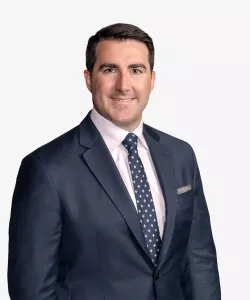Friday Enforcement Wrap: Tennessee-Based Skilled Nursing Facility Company Agrees to Pay $18 Million to Settle “Worthless Services” FCA Allegations
Headlines that Matter for Companies and Executives in Regulated Industries
DOJ News
Tennessee-Based Skilled Nursing Facility Company Agrees to Pay $18 Million to Settle “Worthless Services” FCA Allegations
Tennessee-based Vanguard Healthcare LLC, related companies, and two executives agreed to pay more than $18 million to resolve allegations by DOJ and the Tennessee Attorney General that Vanguard violated the federal False Claims Act (“FCA”) and the Tennessee Medicaid False Claims Act by billing federal health care programs for “worthless services.” According to DOJ, five of Vanguard’s skilled nursing facilities submitted false claims to Medicare and Medicaid for nursing home services that were grossly substandard or worthless. Specifically, the facilities allegedly failed to administer medications as prescribed, failed to provide standard infection control, failed to provide wound care as ordered, failed to take prophylactic measures to prevent ulcers, and failed to meet basic nutrition and hygiene requirements of residents. The settlement is reportedly the largest worthless-services resolution in Tennessee’s history.
The DOJ press release is here.
Urology Company Agrees to Pay $1.85 Million to Settle FCA Allegations Regarding Unbundled E&M Services
Skyline Urology has agreed to pay $1.85 million to resolve allegations that it violated the FCA by submitting false claims to Medicare for evaluation and management (“E&M”) services that were not allowable under Medicare. According to DOJ, Skyline separately billed Medicare for routine E&M services that should have been bundled together with other same-day procedures for billing purposes. Skyline allegedly did this by improperly using the “Modifier 25” billing code to falsely indicate that the services were significant and separately identifiable and thus could be billed for separately. As part of the settlement, Skyline agreed to enter into a Corporate Integrity Agreement with HHS-OIG. A qui tam relator who first brought the allegations to light will receive $323,750 from the settlement.
The DOJ press release is here.
Pennsylvania-Based Pharmaceutical Company Agrees to Pay $4 Million to Settle FCA Allegations Regarding Avoidance of FDA New Drug Application Fee
Lehigh Valley Technologies, Inc. (“LVT”), a Pennsylvania-based company involved in the development and commercialization of certain human drug products, has agreed to pay $4 million to settle allegations that it violated the FCA by scheming to avoid paying fees associated with new drug applications (“NDAs”) to FDA. Under the Prescription Drug User Fee Act, FDA collects prescription drug application fees from companies that submit NDAs. FDA is authorized by statute to grant a fee waiver to a small business that submits its first application, but LVT allegedly had already received a fee waiver in the past, making it ineligible for future fee waivers. According to DOJ, LVT nevertheless improperly paid other companies to submit NDAs for its products under those companies’ names, in an effort to obtain additional fee waivers and avoid paying the required fees.
The DOJ press release is here.
North Carolina Marketer Agrees to Pay $414,000 to Settle FCA Allegations Regarding Kickback Scheme with Pharmacy
Wellcare Consulting, LLC, a North Carolina–based marketing company, and a related individual agreed to pay $414,108 to resolve allegations that Wellcare received kickbacks from a compounding pharmacy in exchange for referrals of prescriptions to the pharmacy that were reimbursed by federal health care programs, in violation of the Anti-Kickback Statute and FCA. According to DOJ, Wellcare knowingly caused false claims that were tainted by the kickbacks to be presented to TRICARE and Medicare as a result of the scheme.
The DOJ press release is here.
DOJ Charges Two Individuals with FCPA Conspiracy in Connection with Ongoing Investigation of Venezuela Bribery Scheme
DOJ charged two individuals in the Southern District of Texas with conspiracy to violate the Foreign Corrupt Practices Act, conspiracy to commit wire fraud, wire fraud, and conspiracy to launder money, in connection with DOJ’s ongoing investigation of alleged bribes paid to Venezuela’s state-controlled energy company, Petroleos de Venezuela S.A. (“PDVSA”). The indictment alleges that, from 2009 to 2013, defendants conspired to bribe three PDVSA officials in exchange for contracts, inside information, and payment on past due invoices. These charges bring the total number of indictments arising from the PDVSA bribery investigation to 21, of which 15 have already pleaded guilty.
The DOJ press release is here.
SEC News
SEC Settles Initial Coin Offering Charges Without Penalty after Company Self-Reports
The SEC resolved charges against Washington, DC–based Gladius Network LLC for allegedly conducting an unregistered initial coin offering (“ICO”). In late 2017, the company allegedly raised roughly $12.7 million in digital assets to finance its plan to develop a network for renting spare computer bandwidth to defend against cyberattacks and enhance delivery speed. The company self-reported to the SEC in the summer of 2018. The SEC announced that it resolved the charges against the company without imposing a penalty because the company self-reported, agreed to compensate investors, and will register the tokens as a class of securities. Companies in other ICO registration cases have agreed to pay penalties to the SEC.
The SEC press release is here.
Litigation Updates
Supreme Court Orders Response to Petition Challenging Constitutionality of FCA
The US Supreme Court recently requested a response to a cert petition seeking review of United States ex rel. Polukoff v. St. Mark’s Hospital, 895 F.3d 730 (10th Cir. 2018), where the Tenth Circuit upheld the constitutionality of the qui tam provisions of the False Claims Act over a challenge under the Appointments Clause in Article II of the US Constitution. The Court’s request for a response could signal that it is interested in taking the case and addressing the constitutionality of the qui tam provisions. The cert petition also raises questions about the proper application of Federal Rule of Civil Procedure 9(b), which requires that fraud be pleaded with particularity, in FCA cases where a qui tam relator claims that he is unable to plead certain information about the alleged fraud with particularity because it is in the defendant’s exclusive control. The response is due March 25.
Contacts
- Related Industries
- Related Practices





